
Creating Shared Value
The fast changes in the competitive and social context we’re witnessing require from us to radically rethink the corporate value creation process. Sustainability, circular economy and social innovation are key elements for business, from manufacturing to services, in large corporations as well as in start-ups.
The Executive Master in Sustainability and Business Innovation was established to develop a new strategic vision and to provide skills and operational tools to those who manage, for their organizations, sustainability, circular economy and social innovation processes. Promoting these topics today means training thought and action leaders, able to reconfigure their business models or to develop new ones, to meet the needs and opportunities in this changed competitive scenario. This journey allows organizations to invest in professionals able to understand changes underway and to better manage them, from within the different corporate functions. Attending the Master means becoming part of a community of innovating managers, able to integrate the current economic, social and environmental challenges, activating partnership and open innovation processes with the various stakeholders in the territory.
This program, the only one in Italy including topics related to sustainability and social innovation at a strategic level and then applying them to the different corporate functions, features 30 classroom days, with a residential formula (Thursday, Friday and Saturday) over a 12-month period, plus a Warm up and one day for the presentation of the Project Works. In addition to the core courses, there are distance learning modules, focus sessions to exchange views on specific subjects with industry managers and professionals, and company visits, an occasion for networking at leading companies for sustainability and partners of Bologna Business School. To start this journey, book an interview with the course Directors.
THE MASTER IS AN INVESTMENT.
THE LOAN IS THE WAY TO FINANCE IT.
Accreditation

Bologna Business School is EQUIS – EFMD Quality Improvement System accredited, one of the most important international quality assessment and continuous improvement systems for Schools of Management and Business Administration.
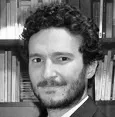
Matteo Mura
Scientific Director
matteo.mura@unibo.it
" There’s no alternative to sustainability and those companies that have understood it are performing better than their competitors. This master is specifically meant to train professionals able to rethink the value creation process of their organization, consistently geared towards sustainability, circular economy and social innovation. "
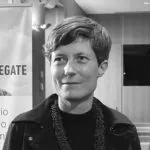
Maria Luisa Parmigiani
Executive Director
marialuisa.parmigiani@unipol.it
" Achieving SDGs could mean accessing a global market of about 12 trillion dollars a year, for the development of key industries such as food and agriculture, cities and urban mobility, energy and materials, health and well-being. For this to happen, organizations need to start a profound rethinking of their business model, adopting a holistic, systemic and deeply innovative approach. "
Structure
The Executive Master in Sustainability and Business Innovation is a part-time program, compatible with work. It lasts 12 months and it features 30 class-room days (Thursday, Friday and Saturday full time once a month).
The program features 10 courses, on 2 areas:
- GENERAL MANAGEMENT
- SUSTAINABILITY & BUSINESS INNOVATION
Every module includes courses, focus sessions, opportunities to exchange ideas and views with company managers and professionals, and a final test. The contents are structured so as to ensure the correct order of activities and allow participants to delve deeper into each specific field, one after the other.
CORE COURSES
10 courses developed in succession to delve deeper into each specific discipline. The classroom activity includes traditional lectures, case-studies and corporate accounts.
FOCUS SESSIONS
3 workshops with university professors, managers and professionals to analyze some of the key aspects of sustainability, social innovation and circular economy.
DISTANCE LEARNING
25 weeks of distance learning using the school e-learning platform. It features: studying the course materials, completing exercises, discussing company cases and exchanging views on the questions asked by the educational tutor and colleagues on the forum.
COMPANY VISITS
2 company visits aimed at exchanging ideas with managers and entrepreneurs, directly in the “field”.
COURSES
This course addresses the challenges facing executives of modern business who need to deal with increasing community expectations for economic, societal and environmental sustainability of their organizations. Contemporary, economics-based models of firms and markets are used to analyze a wide range of strategic real-world scenarios. Students will learn how to identify and choose a superior competitive position, gain and sustain competitive advantage, and how to create an organizational context to make the chosen strategy work. They will also be exposed to analytic tools that help them in making strategic decisions. The single biggest concern of senior executives in global surveys year after year is that their business models are not innovative and therefore, noncompetitive. A related concern is that, absent an innovative model, their company can easily be disrupted. Academic studies have conclusively demonstrated that the highest return on innovation
investment is in the creation of innovative business models.
The course deals with topics related to the measuring and management of innovation project performance. Specifically, the following will be dealt with: techniques to pre-determine the project economic and financial opportunity (Net Present Value, Internal Rate of Return, Payback Period, etc.); techniques to inter-functionally manage project costs and margins starting from the creation stage (Target Costing, Life Cycle Costing); techniques to assess the adequacy of costs incurred versus the generated value (Data Envelopment Analysis and Value Analysis); techniques aimed at supporting the implementation of measures to spur all company areas.
Boccali FilippoOperations module will give to students the necessary skillset to understand which will be the principal evolutions of the field in the next years, so to be able to anticipate, face and benefit from those transformational changes. The course will also include a strong contamination from real world, in terms of advanced technologies (provided both from corporates and startups), new business models and real cases of innovation in the field.
Regattieri AlbertoThe goal is to develop participants’ awareness of their own leadership style and boost some of their key skills to manage processes of change in risk situations with authority. The program is based on experiential learning: Participants alternate meetings which are aimed at doing tasks at different moments to observe their behavior, participants will benefit from the assistance of professionals and managers who have significant experience in leading groups and organizations to excellent results
Ghini MassimilianoThe course aims to introduce the fundamental concepts and research methodologies of business ethics and discuss their practical application by decision-makers within organisations (managers, entrepreneurs, public officials). The main normative ethical theories (deontology, utilitarianism, virtue ethics) will be discussed during the course, exploring their usefulness for analysing decision-making processes within organisations and their relevance for corporate responsibility towards all organisational stakeholders. After discussing the primary theoretical references of normative ethics and the empirical findings of descriptive ethics, participants will explore their practical relevance for successfully building and managing an ethical and sustainable enterprise in a globalised world.
de Colle Simone
The design (redesign) and management of these processes, measuring and controlling their sustainability and environmental impact on man and the planet, are the new challenges of modern production systems. To face this challenge, it is necessary to rethink the production chains, moving towards a logic of circularity, where waste is eliminated and the waste of a production process becomes a second raw material of a subsequent production process.
The objective of the course is to introduce models and tools useful for analysing and controlling production and logistics processes with special attention to the circular economy and sustainability throughout the life cycle of a product, from the supply of raw materials to disposal.
In this context, the course intends to pursue the following results:
– To provide students with the key concepts of circular economy and the knowledge of the main processes characterizing sustainability in operations and in the supply chain (i.e. Green Purchasing, Green Manufacturing, Design for Sustainability, Reverse Logistics, Closed-Loop Supply Chain);
– Provide students with KPIs and tools for assessing sustainability and environmental impacts along a supply chain;
– Encourage the integration of sustainability tools and KPIs with those traditionally used in the planning and management of the Supply Chain and production processes.
Foschi Eleonora
Zanni Sara
Introduction to social innovation and concrete practices for transforming the organizational culture of sustainability from the reputational to the productive area.
Fia MagalìZanni Sara
Over the last decade sustainability, corporate social responsibility and stakeholder management practices have become paramount for companies as well as for the society at large. Although most companies have developed sustainability programs over the years, as they’re cutting carbon emissions, reducing waste, and otherwise enhancing operational efficiency, we are witnessing a mishmash of sustainability tactics that does not add up to a sustainable strategy. To endure, a sustainable strategy has to cope with the competing – and apparently divergent – interests of all stakeholders: investors, employees, customers, governments, NGOs, and society.
In this context corporate Performance Measurement Systems (PMS) play a key role as they help companies to formalize and implement their sustainable strategies as well as to proactively identify new trajectories that help companies to appropriately reconcile the trade-offs between different stakeholders’ wants and needs.
Balugani GiuliaThe goal of this course is to analyze the tools available on the market to support the adoption by companies of sustainability-oriented strategies in order to help identify possible financial solutions but above all to decline business projects, areas of development, structural investments to be financed by sustainable investors. In particular, two different perspectives related to finance will be developed within the course:
- Institutional political process: how regulations and control bodies change
- Operational tools: Green and Social Bond, Impact Bond, Green Loan, etc.
Parmigiani Marisa
Petracci Barbara
This course illustrates the principles and tools that a contemporary manager must use to demonstrate the economic, social, and environmental sustainability of their organizations. It covers the guiding principles of responsible communication, with an in-depth session on green and social washing to provide tools for protecting against excessive communication. Data related to customer choices are also analyzed, and interpretative models are provided. Students will learn how to identify and choose appropriate communication tools, build and sustain a trusting relationship with stakeholders, and develop an adequate digital communication strategy. Good, comprehensive and credible communication is a fundamental enabler for a solid reputation, which, as various scientific studies have shown, leads to greater employee and customer loyalty, as well as their willingness to recommend the company.
Giovanna ZacchiRossella Sobrero
Learning approach
The Master study method includes learning periods in the classroom and distance learning on the School e-learning platform, that is constantly monitored by the related instructors.
DISTANCE LEARNING
The distance learning study activity features a weekly work plan on the School e-learning platform, which is a section of individual work of further analysis, supervised by the reference tutor. The platform includes a Forum for the real-time sharing of reflections and additional study among faculty and participants.
HOW THE COURSES WORK
Each course starts with a residential and it usually covers 1.5 of the 4 days, in addition to the hours necessary to interact on the platform in the following weeks. Thus the learning activity follows a linear path, constantly monitored by the course tutor who is always available to provide clarifications and additional information. The Master takes place in two distinct places: a physical location, i.e. Villa Guastavillani, the headquarters of Bologna Business School in Bologna, and a virtual one, that is the e-learning platform. Participants should prepare for about 8 hours of study per week. At the end of each module (3 modules) participants take a final test aimed at assessing the level of learning they’ve achieved.
Faculty
Faculty members at Bologna Business School work together offering outstanding teaching standards. An international and interdisciplinary approach is guaranteed by a joint team of distinguished national core professors, adjunct, visiting professors, guest speakers and top managers.
-
Giulia Balugani
Unipol
-
Francesco Bicciato
Direttore Generale
Forum per la Finanza Sostenibile ETS
-
Filippo Boccali
Adjunct Professor and Research Fellow of Management
University of Bologna
-
Simone De Colle
Full Professor of Business & Strategy
IÉSEG School of Management
-
Mark Esposito
Visiting Professor of Strategy
Bologna Business School
-
Magalì Fia
Post-Doctoral Researcher
University of Bologna
-
Eleonora Foschi
Permanent Researcher in Circualr Economy
Italian National Agency for New Technologies, Energy and Sustainable Economic Development (ENEA)
-
Massimiliano Ghini
Director
European Center for Team Emotional Intelligence
-
Giovanna Zacchi
Head of ESG Strategy
BPER Banca
-
Marisa Parmigiani
Sustainability manager, Gruppo Unipol
Secretary, Impronta Etica
-
Barbara Petracci
Associate Professor of Corporate Finance
University of Bologna
-
Alberto Regattieri
Full Professor of Operations and Manufacturing Systems
University of Bologna
-
Rossella Sobrero
Presidente
Koinètica
-
Sara Zanni
Assistant Professor of Business Sustainability
University of Bologna
CLASS PROFILE 2018-21
AGE

PROFESSIONAL BACKGROUND
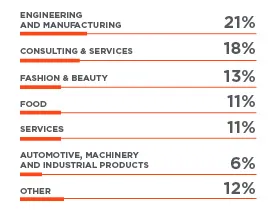
Alumni

Luciana Emanuela Ciceri
General Manager & Board Member – Ciceri de Mondel Srl
Executive Master in Sustainability & Business Innovation (Ed. 2021/2022)
"I enrolled in the Master's programme with the environmental impact of manufacturing in mind to increase my skills and knowledge in the field of the circular economy. After an intense year of study and discussion with lecturers and colleagues, I find myself with a much broader and more articulate vision of what is meant by sustainability and the possibilities of innovation connected to it. A path of great professional and personal enrichment that opens up new and, at times, unexpected points of view."

Roberta Marsi
Head of Corporate PR and General Services, DHL Express Italy
Executive Master in Sustainability & Business Innovation (Ed. 2019/2020)
"Everyone's contribution makes a difference in the success of a project. When the project supports the company's vision and mission along the path of innovation in sustainability, this Master is the answer. The method, the contents, the parterre of participants and the human touch of the lecturers despite the distance, are what I will carry with me forever. Thank you because it has been an enrichment for me and my company."

Cristian Paravano
General Manager & Board Member – Gatto Astucci Spa
Executive Master in Sustainability & Business Innovation (Ed. 2019/2020)
"“As someone who has always been particularly interested and sensitive to issues of Sustainability and Business Innovation, EMSBI was a great opportunity to both integrate and revolutionise my vision with a multidisciplinary, interactive approach: after several years of study and in-the-field management, this master provided me with the basis and the necessary competences in order to better manage a subject which is much more complex, varied and fascinating than I expected to.”"

Antonella Sarti
Responsabile Amministrazione Finanza e Controllo
Emba Coop (ed. 2010/11)
"I chose Emba Coop because I was looking for a Master that could make me more adequate to deal with job related problems"

Giorgio Ferrari
Direttore Generale Log-Man
Emba Coop (ed. 2011/12)
"If previously it was a option, today it is unthinkable to be a good manager without having participated in this master. With Emba Coop I acquired a portfolio of knowledge that is simply priceless"
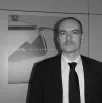
Francesco Malaguti
Responsabile Acquisti Camst
Emba Coop (ed. 2010/11)
"I chose EMBA Coop in order to enrich my experience as well as my personal and professional culture"
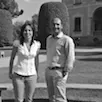
Daniela Vitali e Gianluca Giglio
Responsabile Controllo di Gestione Consolidato e Responsabile sviluppo del personale e Organizzazione
Emba Coop (ed. 2012/13)
"An important investment in training in order to protect the development of the cooperative heritage and my own personal growth""
Networking
The Executive Master in Sustainability and Business Innovation is a master made of people, during which formal and informal opportunities for debates are created in order to foster the exchange of ideas among participants. Networking develops among the students of the same class, between participants and the faculty, as well as with students from other courses and with the School community.
Company visits and the accounts by the experts allow participants to exchange views with managers or entrepreneurs on a significant experience. The direct contact with managers and the protagonists of important organizations provides a wonderful learning and networking opportunity.
COMPANIES
The Executive Master in Sustainability and Business Innovation is the ideal course to develop management skills and leadership capabilities. Starting from the main issues and topics that the companies have identified during the planning stage, in their own contexts, it was possible to focus on and understand specific needs and expectations related to this training journey.
BUSINESS PARTNER:
- Camst
- Gruppo Hera
- Intesa San Paolo
- Lega coop
- Philip Morris
- Unipol
INSTITUTIONAL PARTNER:
- Alleanza Italiana per lo Sviluppo Sostenibile (ASviS)
- Fondazione Sodalitas
- Forum per la Finanza Sostenibile
- Impronta Etica
- Sustainability Makers
- PRME Principles for Responsible Management Education
- RRBM Responsible Research for Business and Management
- UN Global Compact
Programme Advisory Committee
- Filippo Bocchi, Gruppo Hera
- Cristina Fioravanti, Alleanza Italiana per lo Sviluppo Sostenibile (ASviS)
- Stefania Bertolini, Sustainability Makers
- Arianna Lovera, Forum per la finanza sostenibile
- Claudio Lubatti, Intesa San Paolo
- Francesco Malaguti, Camst
- Roberta Marsi, DHL Express (Italia)
- Elvio Rocco, Philip Morris Italia
- Sara Teglia, Impronta Etica
Community
COMMUNITY AND CAREER DEVELOPMENT
During the Master, a series of seminars with head-hunters and HR managers are offered, to provide tools and resources to contribute to your career development and how to enter the job market in leadership positions.
Once the Master is ended, it is possible to join the activities dedicated to the Community, to further increase your own network. Furthermore, meetings open to the entire BBS Community are periodically scheduled with managers, entrepreneurs and guests, focusing on the different scenarios of a constantly evolving society and market.
FEES
The registration fee for the Master’s course on a company basis is 18.200 Euros + VAT.
The registration fee for the Master’s course on an individual basis is 15.200 Euros + VAT.
- Participation to the BBS Community events
- Computer lab
- Wi-Fi
TAX RELIEFS
Companies that make investments in education 4.0 aimed at the acquisition or consolidation, by the company’s employees, of skills in the technologies relevant to the implementation of the process of technological and digital transformation can take advantage of the tax credit in 2022 provided by the “National Plan Enterprise 4.0”. For more information, click here .
Funding
Study loan on preferential terms:
– Subsidized rate
– Payable in 10 years
– Possibility to postpone the payment of the first installment up to 36 months
For information write to executivemaster@bbs.unibo.it
INTERPROFESSIONAL FUNDS
Preferential terms are available from your reference Inter-professional Fund:
• Fonditalia: fonditalia.org
• Fondimpresa – for managers / middle management: fondimpresa.it
• Fondo Dirigenti PMI – for executives of industrial SMEs: fondodirigentipmi.it
• Fondirigenti – for executives: fondirigenti.it
• Fon.Coop – for cooperatives: foncoop.it
Fondimpresa funds training activities to support product and/or process technological innovation for SMEs in the manufacturing industry. For further information click here.
REQUIREMENTS
The Master is meant for managers and professionals working at for-profit and not-for-profit companies, cooperatives, representation bodies and public authorities, interested in acquiring tools, methodologies and multi-disciplinary skills to manage and implement, within their own organizations, company strategies and operational processes related to sustainability, circular economy and social innovation.
APPLICATION PROCESS
The selection process is carried out by vetting the Curriculum Vitae and holding an individual interview, aimed at identifying the candidate professional profile and their consistency with the participation to the master. Candidates are then contacted to plan the selection interview with the Master Directors. No auditors are allowed. Attendance to individual courses is not allowed.
FAQs
The majority of participants have degrees. A quota of applicants who do not hold a three year degree and with a minimum 5 years of professional experience can be admitted
The selection interview is necessary but not binding. If necessary, a second meeting can be held to provide further clarification.
It is possible to meet one or more current or past students by contacting the Program Manager who will provide their contact details.
The program manager can provide attendance certificates at the end of each lesson to those who require it.
Yes, since it is a first level Master, a Bachelor’s degree is a requirement for participation. In order to verify admission requirements we ask you to please consult the Call for applications. However, a quota not exceeding 20% of the places are open to participants lacking a degree. In such a case, after an agreement is made with the Program Manager, it is possible to perform a selection interview with the Director of Studies.



